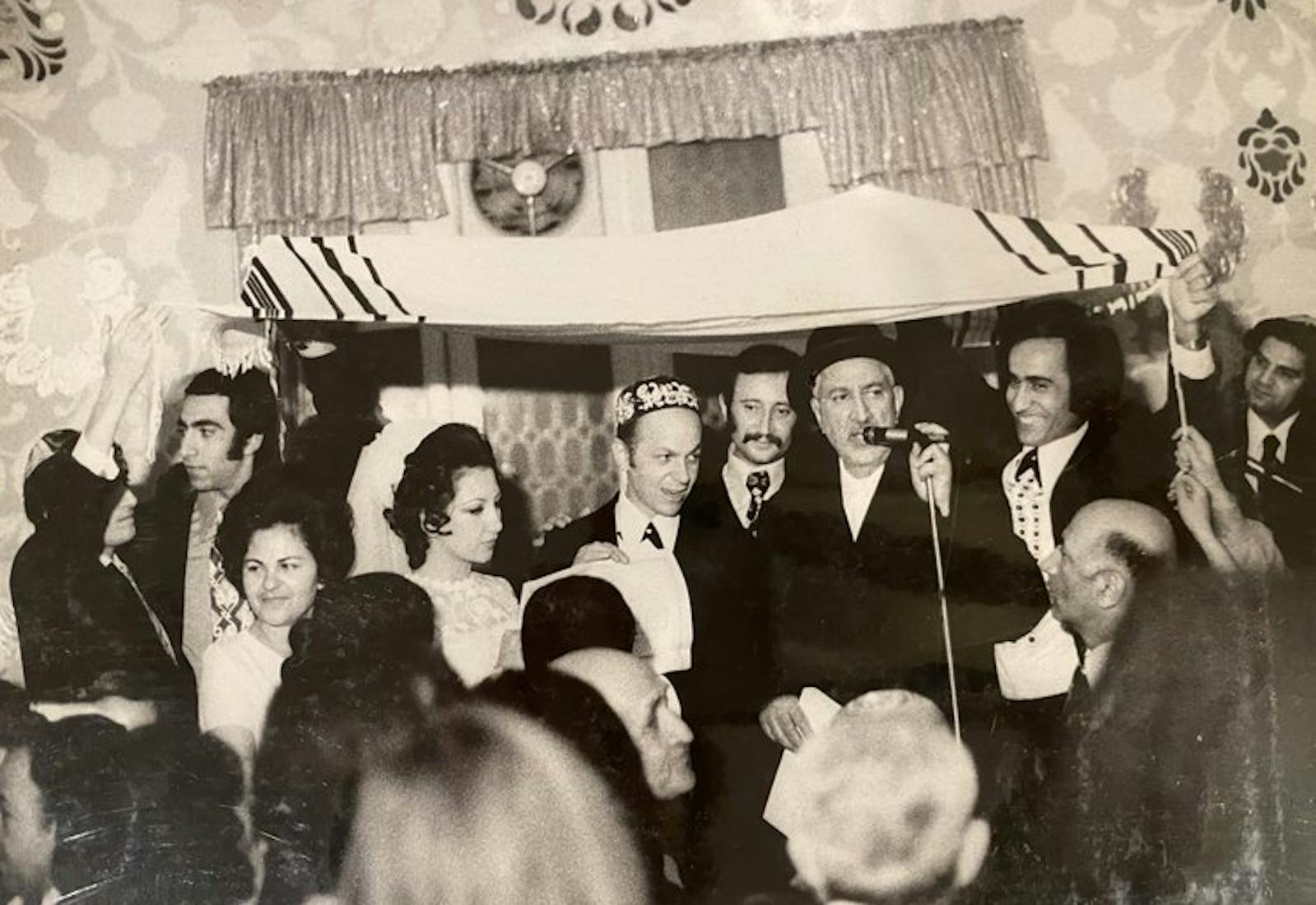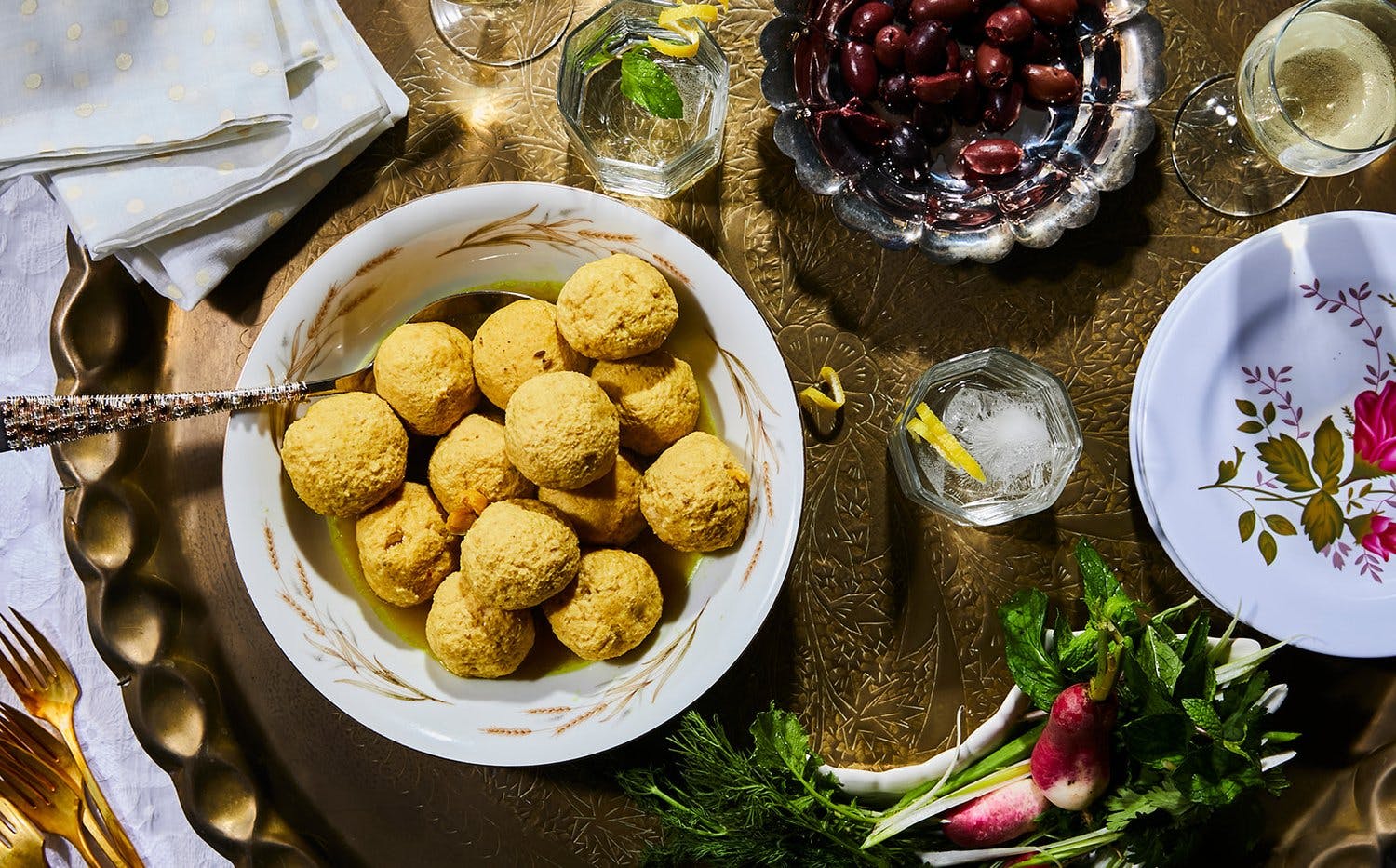Shared by Sogol Somekh Mesznik and Akhtar Somekh


When Sogol Somekh Mesznik’s family moved from Tehran to New York in 1986, she was just four-years old, too young to clearly recall the challenging transition her older brother and sister faced when they started school in a new language or the difficulties her parents experienced as they navigated a new world.
Everything outside of the house was different, explains her mother Akhtar, but inside it was just like living in Iran. Sogol’s grandparents and uncle lived nearby and they visited often, sharing meals together.
In Tehran, Sogol’s father David sold Persian rugs, first door to door on a bicycle and later at a store he opened, often selling to Americans or European customers. At first, after the Iranian Revolution, little in the family changed. While much of Iran’s remaining Jewish population left, Sogol’s family stayed for a time. “But, every year, [it] became worse and worse,” explains Ahktar, particularly for her girls. Sogol’s older sister was forced to cover her hair with a scarf in elementary school. When she was 10, Akhtar gave her a boy’s haircut so outside of school, she “was able to go out — not having a scarf on — walking like a boy in the society,” Akhtar says.
When the family decided to leave Iran four years after the revolution, they weren’t allowed to depart together. It took a few more years to leave, but using connections from David’s business, they obtained visas and Akhtar took the three kids who were 12, 10, and 4, by bus to Istanbul, a journey that took them four days and five nights. From there, they were able to fly to London and finally to New York where David met them. Afraid of revealing to neighbors that they weren't coming back, the family left nearly everything behind, packing as if they were going on a family trip.
In New York, they gathered every Friday for Shabbat dinner with family that lived nearby. The meals always started in the living room with everyone snacking on chickpea-flour dumplings called gondi, pickles, and plates of sabzi khordan filled with fresh watercress, scallions, radishes, and herbs. The gondi recipe, which is unique to the Jewish community, is one Akhtar’s family picked up when they moved from Isfahan to Tehran in the early 1950s.
At the table, there was always chicken soup called abgoosht, which Akhtar points to as an equalizer among Persian Jewish families she knows. Even if a family couldn’t afford to make more elaborate stews or buy expensive cuts of meat generations ago, they could make abgoosht. In her family, it’s made by cooking a whole bird stuffed with rice in water and spices, yielding the chicken, as well as a rich broth with chickpeas.
Today, the family menu has changed slightly, with hummus and a salad sometimes joining the lineup, but the sentiment hasn’t. Ahktar hosts her children and grandchildren like her mother did before. “The door is always open,” says Sogol. Her husband will ask her what the plan is for Friday night. She responds: “The plan is always, if we want to come, we can come — it’s not really a phone call I need to make.”
